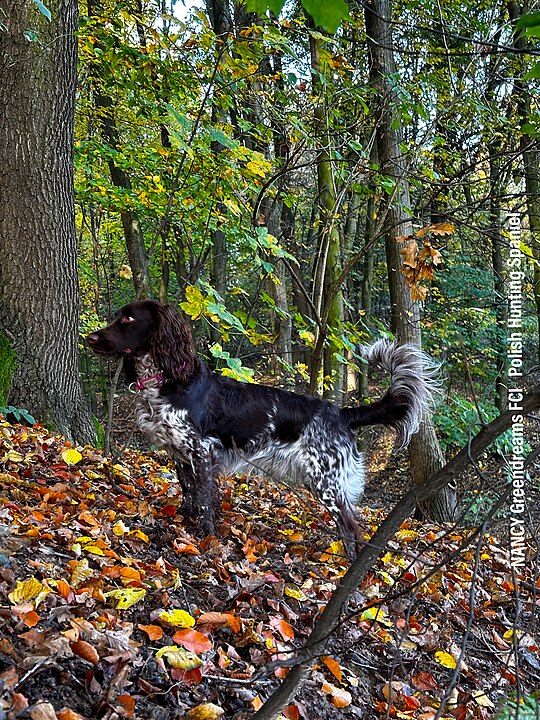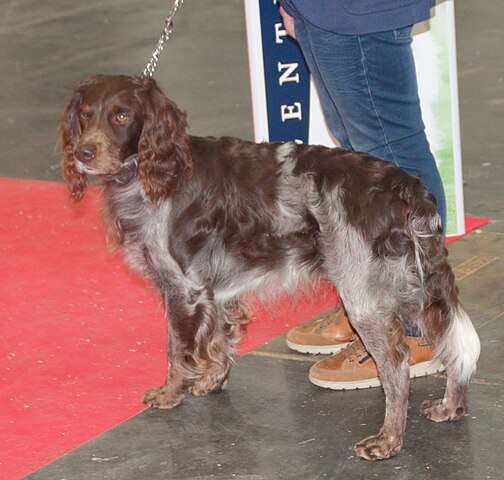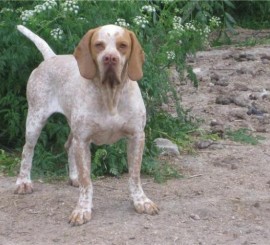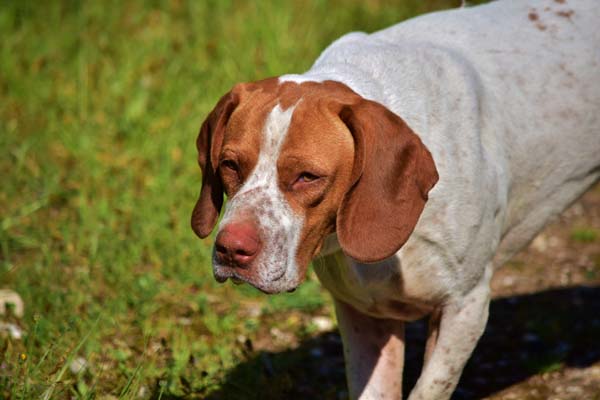The English Cocker Spaniel was at one point the same breed as the (American) Cocker Spaniel until the breeds split in 1946. It is worth noting that in England, this breed is called the Cocker Spaniel and the other is called the American Cocker Spaniel. The English can be differentiated from his American cousin by being larger and having less coat, in addition to a longer, more narrow head. The English Cocker is generally an eager-to-please little dog – a trait he shares with many other breeds of the sporting group. This merry spaniel is very athletic and is heralded for his skills as a gun dog, however his true skills shine in the home! He is often quite affectionate to those that he knows well and makes a loyal family companion, building strong bonds with the whole family including children. Funny and carefree, he enjoys making people laugh. Often happy, his wagging tail is a hallmark of the breed.
Most English Cockers are very energetic and intelligent… several qualities that make him a natural at training, but if left unchecked might cause him to display behavioral issues such as barking or digging. 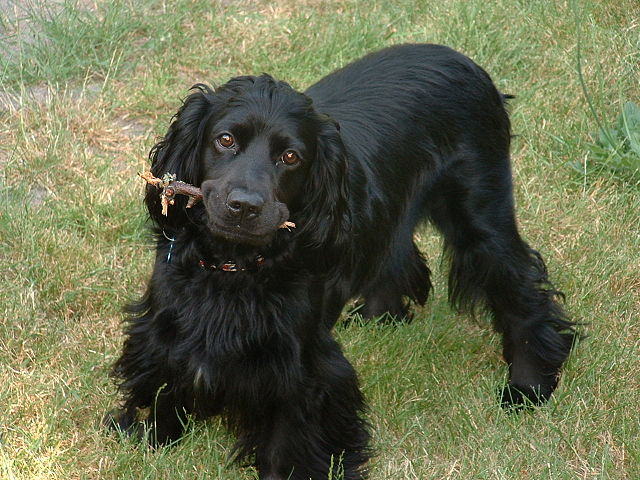 To mitigate potential issues, this playful breed needs to be given regular exercise so that he can become a well-behaved house dog. English Cockers tend to get along very well with other dogs, and a pair can easily spend hours in the yard playing with eachother! This is one of many ways to give him an outlet for his energy, however it is not a complete substitute for routine exercise. An owner should expect to give this dog at least one 30 minute walk a day, if not twice a day. Field-bred dogs are likely to have more energy and need more exercise.
To mitigate potential issues, this playful breed needs to be given regular exercise so that he can become a well-behaved house dog. English Cockers tend to get along very well with other dogs, and a pair can easily spend hours in the yard playing with eachother! This is one of many ways to give him an outlet for his energy, however it is not a complete substitute for routine exercise. An owner should expect to give this dog at least one 30 minute walk a day, if not twice a day. Field-bred dogs are likely to have more energy and need more exercise.
English Cocker Spaniels are happiest when they have a job to do, especially if they are doing that job with their owner. Obedience training is definitely needed to get them off on the right start, and highly recommended! While many want to please some of them need some reassurance and foundational training, depending upon the task at hand. They are quite a versatile breed, excelling as hunters as well as in the obedience ring, tracking, agility, fly-ball, and therapy work. Of course, they also enjoy just “hanging out” with their family, as long as they are given adequate exercise and attention.They are definitely not “outdoor only” dogs, they need to be inside with their family. Many owners find that they become “little shadows”, prefering not to leave the sight of those they love.
There exist two strains within the breed – “working” and “show”. Dogs from working lines generally are more active and can be a handful for those who are not able to provide an outlet for that energy. Obedience training is especially helpful for working lines, as it helps to keep their busy brains occupied, although they still need the physical outlets as well. When it comes to training, English Cockers are quick learners but are often very sensitive to particular training methods. They work best with lots of praise and encouragement.
English Cocker Spaniels are likely to bark at the door when someone comes knocking, however this is not a guard dog by any means. While some are moderately protective, they are generally not aggressive at all, and in fact are fairly reserved once the door is opened to a stranger. At such point they tend to be polite (never fearful provided they were bred and socialized correctly), but otherwise are not a menacing guard in any way.
Generally the English Cocker is a healthy dog, however it’s important to obtain a puppy through a responsible breeder that health tests their dogs! This is the single best way to “stack the odds in your favor” if you are a potential buyer. Health issues in the breed include autoimmune issues, bladder stones, copper storage disease, epilepsy and IBD, among others. A breeder should be not only be conducting DNA testing, but also doing x-rays, thyroid panels, BAER testing and other exams. This is important work to make sure that only healthy dogs are producing puppies in the breed! As a buyer, you can be more assured that your puppy will live a healthy life up to their average of 14 years.
